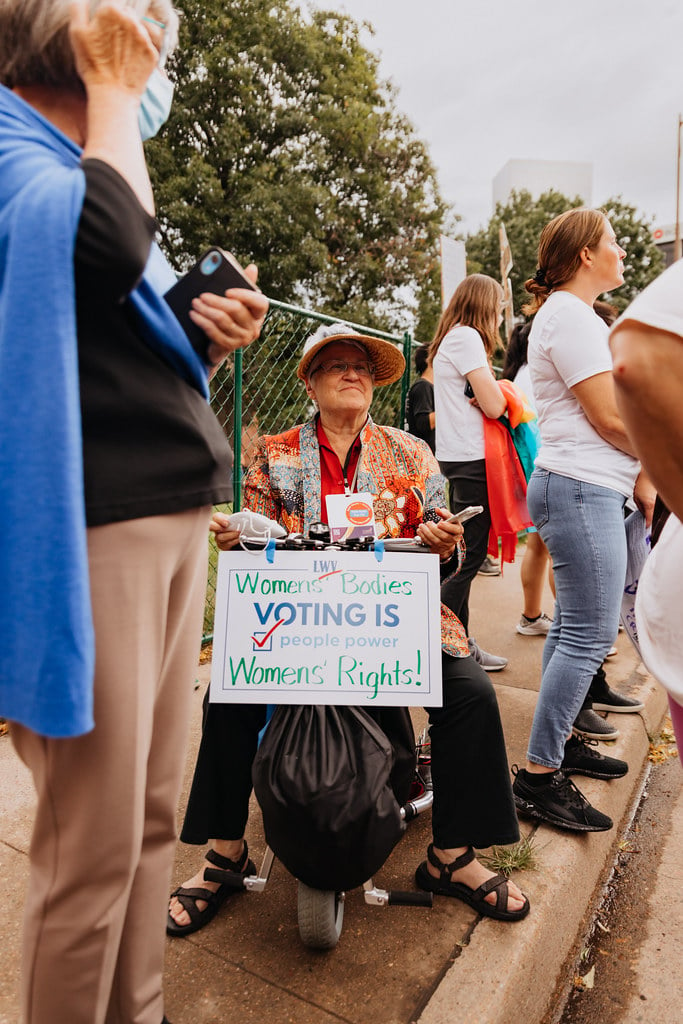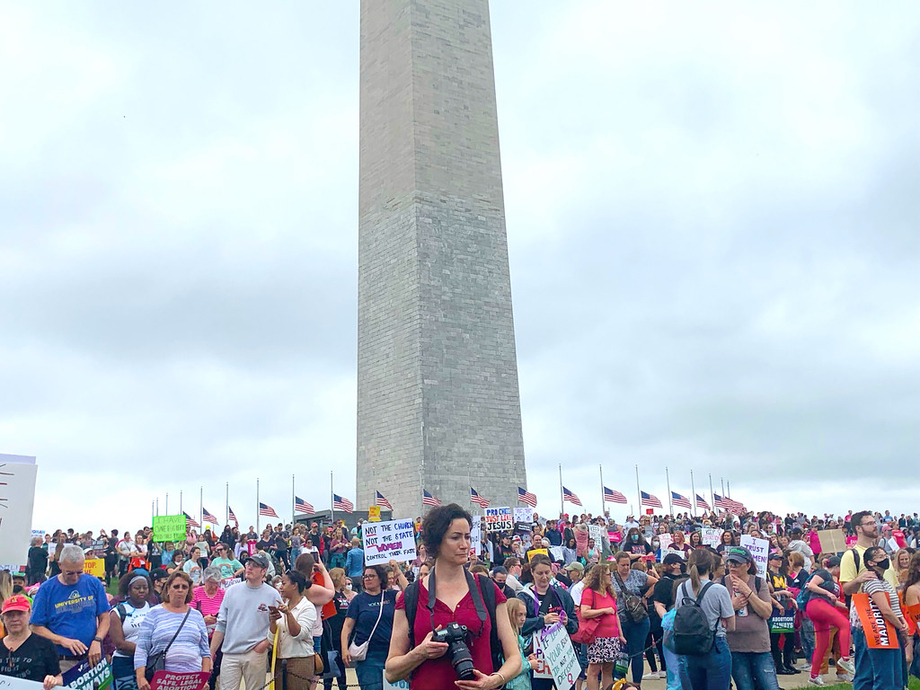In June 2022, the US Supreme Court ruled in Dobbs v. Jackson Women’s Health Organization, overturning Roe v. Wade and Planned Parenthood v. Casey and ending the federal constitutional right to abortion. As the Supreme Court no longer recognizes the right to abortion as protected by the US Constitution, this ruling makes state constitutional amendments even more significant, leaving the right to abortion up to federal or state laws.
State constitutional amendments that explicitly restrict or protect the right to abortion limit state legislators’ ability to pass new abortion laws and state courts’ ability to interpret whether the state protects the right to abortion. In November 2022, voters in five states will vote on abortion-related ballot measures, four of which would amend the state’s constitution to weaken or protect reproductive choice.
What is a State Ballot Measure?
A state ballot measure is a state constitutional amendment, law, or question that appears on a statewide ballot for voters to decide, typically with a simple majority vote. Every state except Delaware requires that voters approve a proposed constitutional amendment.
Ballot measures usually take one of two forms:
-
Legislatively referred measures: A state’s legislature passes an amendment or statute by a state-dependent number of votes in one or two consecutive legislative sessions. It then goes to the statewide ballot for voters to decide.
-
Initiated measures: Citizens propose an amendment or statute and collect a minimum number of voters’ signatures, at which point it goes directly to the statewide ballot (direct initiatives), or to the legislature, which can put it on the statewide ballot (indirect initiatives). This process is only an option in a limited number of states.
,

,
Which States Have Reproductive Rights on the Ballot?
Kansas
Unlike the other five ballot measures, Kansas voters already voted on a legislatively referred constitutional amendment known as the Value Them Both Amendment. This came after the Kansas Supreme Court ruled in 2019 that the Kansas Constitution’s Bill of Rights protects the right to abortion. The proposed amendment would have amended the Kansas Constitution to say that it does not protect the right to, or require government funding for, abortion and would have given the Kansas state legislature the sole authority to regulate abortion through legislation.
Thanks to the incredible work of pro-choice organizers and advocates, in August, Kansas voters rejected the ballot measure with a nearly 60% vote, effectively maintaining the Kansas Supreme Court’s ruling on the right to abortion in the state. Kansas is currently enforcing a law that prohibits abortion at 22 weeks from the last menstrual period.
Kentucky
Kentucky voters will vote on a legislatively referred constitutional amendment known as Amendment 2. This amendment would change the Kentucky Constitution to say that it does not protect or require public funding for abortion.
Abortion rights advocates are currently challenging the state’s six-week and near-total abortion bans in court, arguing that the Constitution protects the rights to privacy, bodily autonomy, and self-determination. If Amendment 2 passes, it will supersede these arguments, undermining a Kentucky court’s ability to protect the right to abortion. If Amendment 2 does not pass, it will make it possible for the Kentucky Supreme Court to strike down the state’s currently enforced ban on abortion at conception.
Of note, Kentucky does not use government funds for abortion services, except in select circumstances under Medicaid as required by federal law. If Amendment 2 is defeated, the state still will not be required to use public funds for abortion.
,
Advocate for reproductive rights in your state by joining your local League.
,
Montana
Montana voters will vote on a legislatively referred state statute (LR-131), known as the Born-Alive Infant Protection Act. Adoption of this statute would grant legal personhood to a fetus born alive at any stage of development, including during an abortion, and would require the provision of medical care to the fetus, regardless of the likelihood of survival. It would also establish a $50,000 fine and/or a 20-year maximum prison sentence for any health care provider that violates the law.
Montana is currently enforcing a law that allows abortion until the point at which a fetus is viable (likely to survive outside a person’s uterus). It also has a law that establishes criminal penalties for anyone who causes the death of a viable fetus born alive. The defeat of LR-131 would not interfere with these existing laws, which together protect a fetus at viability.
Montana’s Constitution prevents the state from infringing on an individual’s right to privacy without showing a “compelling state interest.” The Montana Supreme Court has ruled that this right includes a right to procreative autonomy. If LR-131 passes, it could be interpreted as establishing a compelling state interest in infringing on the right to privacy, making it easier for the state to pass additional abortion bans or restrictions. The passage of the statute could also have a chilling effect on health care providers who reduce or stop offering abortion services for fear of criminalization. Further, its codification of fetuses born alive as “legal persons” could be used in the courts to uphold more abortion bans or restrictions.
California
In California, voters will vote on a legislatively referred constitutional amendment known as Proposition 1. California law currently allows abortion until the point at which a fetus is likely to survive outside a person’s womb, and its Constitution protects the right to privacy, which the California Supreme Court has found includes the right to make reproductive choices. The proposed amendment would prohibit the state from denying or interfering with an individual's reproductive freedom, including the right to abortion or contraceptives.
Vermont
Vermont voters will vote on a legislatively referred constitutional amendment known as Proposal 5. Vermont law currently protects an individual’s right to abortion and contraception. The proposed amendment would prohibit the state from denying or infringing upon an individual’s right to personal reproductive autonomy without what is known as a “compelling state interest.”
Michigan
In Michigan, abortion rights activists gathered enough signatures to add an initiated constitutional amendment known as Proposal 3 to the ballot. Michigan law currently allows abortion until the point at which a fetus is likely to survive outside a person’s womb. The proposed amendment would establish the right to reproductive freedom, which explicitly includes abortion and contraception.
,

,
Michigan’s Constitution currently protects the rights to equal protection and due process. A Michigan court pointed to these rights to block the state’s 1931 abortion ban, which outlaws abortion without exceptions for rape or incest. If Proposal 3 passes and this court decision is challenged, the amendment will protect against the enforcement of the near-total abortion ban.
How to Take Action
The League of Women Voters of the United States (LWVUS) believes that public policy must affirm the constitutional right of privacy of the individual to make reproductive choices. The League also believes that every US resident should have access to a basic level of quality health care at an affordable cost, including abortion.
LWVUS will continue to track changes in the legislative landscape and serve as a resource for state Leagues advocating against harmful, and in support of protective, state-level legislative measures to ensure access to safe and legal abortion services.
As you prepare for Election Day on Nov. 8, the League of Women Voters Education Fund runs VOTE411.org, a one-stop-shop for nonpartisan election-related information. To learn more about the ballot measures in your state, visit VOTE411.org.